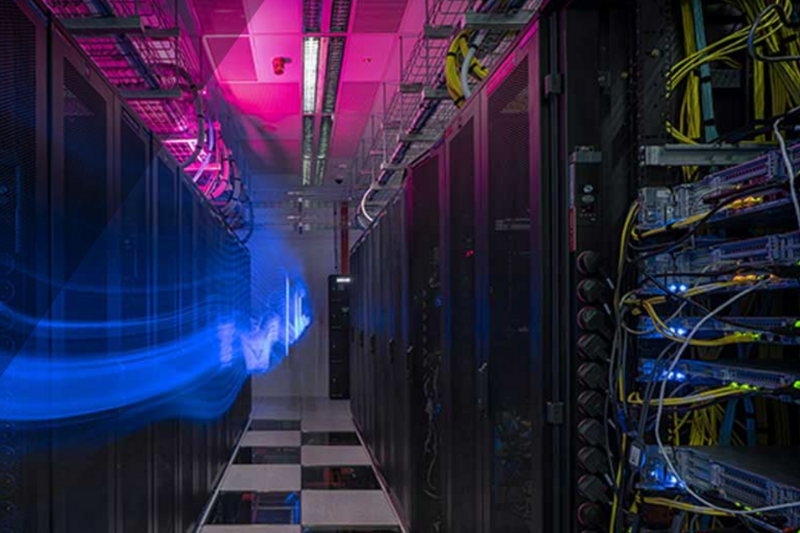Keppel DC REIT’s 1H 2024 DPU Tumbles Nearly 10% Year on Year: Should Income Investors Be Concerned?

The next REIT to report its latest results is Keppel DC REIT (SGX: AJBU).
The data centre REIT faced similar headwinds to Mapletree Logistics Trust (SGX: M44U), which released its first quarter of fiscal 2025 results earlier last week.
For the first half of 2024 (1H 2024), Keppel DC REIT saw its distribution per unit (DPU) tumble by 9.9% year on year to S$0.04549.
Should income investors be concerned about this dip? Let’s dig deeper to find out.
Drag from Guangdong data centres
Keppel DC REIT reported a mixed set of financial numbers for 1H 2024.
Gross revenue saw a healthy 11.9% year-on-year increase to S$157.2 million, underpinned by positive rental reversions.
There was even a major contract renewal for a lease in Singapore which recorded a positive rental reversion of more than 40%.
However, property expenses surged 87.1% year on year to S$24.5 million as part of the loss allowance provided for the Guangdong data centres occupied by the REIT’s Bluesea tenant.
Finance costs eased slightly for the REIT, dipping by 1% year on year to S$5.5 million and providing some respite.
After factoring in the loss allowance from the Guangdong data centres, DPU slid 9.9% from S$0.05051 to S$0.04549.
Keppel DC REIT quantified the impact of its Bluesea tenant on DPU, stating this as S$0.00638.
If we add this figure back to 1H 2024’s reported DPU, the DPU will rise to S$0.05187 and will be 2.7% higher than the prior year’s DPU.
From this computation, we can conclude that the lower DPU should be attributed solely to Bluesea, of which the REIT manager has not given any update for this quarter.
Robust portfolio metrics
Despite the weaker performance, Keppel DC REIT sported robust portfolio metrics.
Portfolio occupancy stayed high at 97.5% as of 30 June 2024 with a long portfolio weighted average lease expiry of 6.4 years.
In addition, the REIT also boasts a staggered lease expiry profile with nearly half of its leases by lettable area expiring in 2029 or beyond.
The majority of Keppel DC REIT’s rental income is also derived from investment-grade clients or those with an equivalent credit profile.
Leverage still under 40%
The good news is that the REIT’s aggregate leverage stood at 35.8% as of 30 June 2024, 1.8 percentage points lower as compared with three months ago.
The average cost of debt also stayed constant at 3.5% over the same period.
The data centre REIT’s interest coverage ratio (ICR) on a trailing 12-month basis improved by 0.5 times to 5.1 times, way above the planned mandatory requirement of 1.5 times ICR proposed by the Monetary Authority of Singapore.
Investors should note that the aggregate leverage is expected to rise to 39.2% after the acquisition of the Tokyo Data Centre.
With Japanese Yen-denominated debt, the REIT will also see its cost of debt decline to 3.3% post-transaction.
Hence, the REIT should have sufficient leeway to use debt financing for future acquisitions.
Acquisitions and capital recycling
Aside from acquisitions, Keppel DC REIT is also active in recycling capital.
It conducted the divestment of Intellicentre Campus at an exit cap rate of around 3.6%.
The proceeds from the sale were partially invested in an Australian data centre note with an initial yield of close to 7%.
What’s more, this note allows for an annual consumer price index-linked escalation, thus helping the yield to keep up with inflation.
This move, coupled with the acquisition of the Tokyo Data Centre, should help to boost DPU in future periods.
Get Smart: Data centres are still seeing healthy demand
Keppel DC REIT boasts strong debt and operating metrics that demonstrate the strength of its data centre portfolio.
The REIT manager is still in discussion with Bluesea on a repayment plan and will update investors on this in due course.
Apart from the negative impact caused by the Guangdong data centres, the REIT is doing well in all other aspects and is also active in capital recycling.
Generative artificial intelligence (AI) is projected to become a strong demand driver for data centres and cloud service providers are stepping up expansion plans globally.
These moves bode well for the data centre industry with the Asia-Pacific colocation data centre market size expected to grow at a five-year compound annual growth rate of 13.3% to 19,069 MW by 2028, up from the current 10,233 MW.
With demand staying strong because of AI and digitalisation, Keppel DC REIT should enjoy high occupancy along with more opportunities for positive rental reversion.
Want to tap into David Kuo, Chin Hui Leong, and Royston Yang’s investing insights for FREE? You can do that in just 5 minutes a day. Simply enter your email below, and we’ll add you inside the ‘Secrets to Becoming a Singapore Stock Market Millionaire ’. You’ll get valuable advice (and stock details) others pay hundreds for straight into your inbox. Sign up now!
Ready to discover the next $100 billion stock? Our newest FREE report dives deep into five popular SGX companies that many say are the next big thing. Read our team’s findings to guide your investment strategy. Click the link here to download now.
Follow us on Facebook and Telegram for the latest investing news and analyses!
Disclosure: Royston Yang owns shares of Keppel DC REIT.
The post Keppel DC REIT’s 1H 2024 DPU Tumbles Nearly 10% Year on Year: Should Income Investors Be Concerned? appeared first on The Smart Investor.